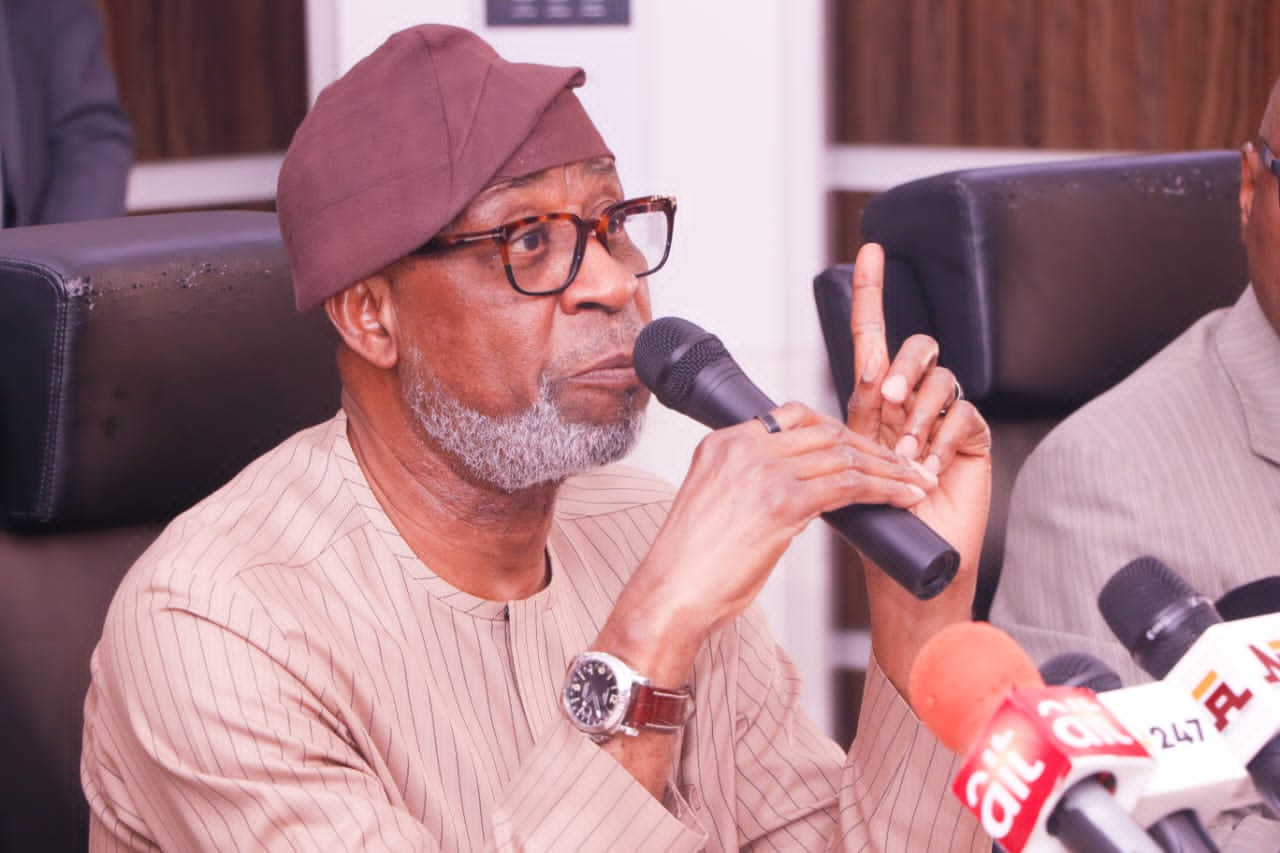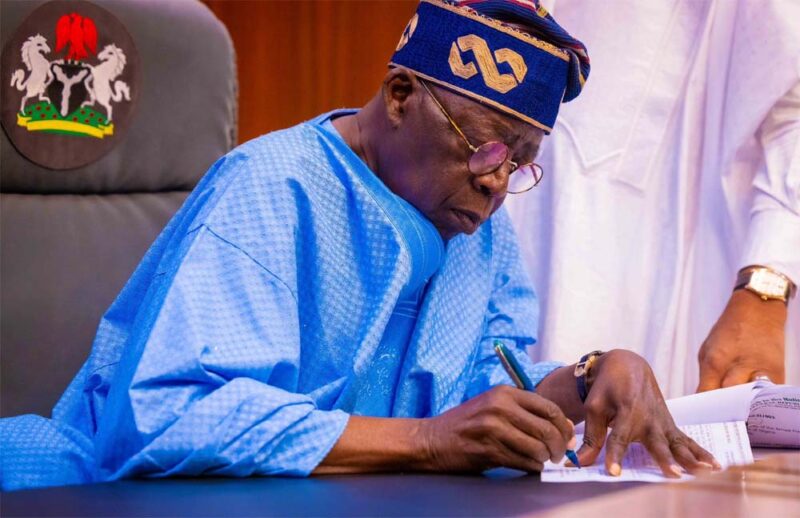News
South-South receives N333bn CBN intervention funds

The push for the people of Nigeria’s South-South region to show greater interest in the various intervention funding of the Central Bank of Nigeria (CBN) is now yielding fruits, as the apex bank has granted a total of N333.2billion intervention loans to businesses in the region.
The Governor of the CBN , Mr. Godwin Emefiele, disclosed this at the commissioning of the Rivers State Cassava Processing Plant, located at Afam/Ban-Ogoi Link Road in Oyigbo Local Government Area, Rivers State, on Thursday, last week.
Some critics had faulted the CBN for what they described as an undue concentration on a certain part of the country while neglecting some parts of Southern Nigeria.
But the CBN governor said that the apex bank has been working to boost economic activities in all parts of the country, without neglecting any region.
He said, “So far, our developmental finance initiatives at the Central Bank of Nigeria have been focused on creating an enabling environment that will drive both public and private sectors participation in the real sector with strategic deliverables around price stability, job creation, financial inclusion, import substitution and accretion to foreign reserve among others.
“Our interventions seek to improve access to credit for households and businesses which will enhance productivity and create value across a wide range of economic activities. Our interventions have cut across key sectors such as agricultural, manufacturing, health, and infrastructure. So far, the sum of N333.196 billion has been disbursed to various projects in the South-South region covering activities in these different economic sectors.
“Land development has been identified as a major constraint to increase in agricultural activities in the Southern parts of the country due to its topography. As a result, the CBN has partnered with several States Governments in the Region under the Accelerated Agricultural Development Scheme (AADS).
“The sum of N7.436 billion has been accessed by four States in the South-South regions to open up more land for cultivation, create access roads to agricultural lands, and provide infrastructure among other support services in the region. These measures are helping to induce greater activity in the agricultural sector and are enabling the movement of goods from farm to factories, and to the markets.”
Mr. Emefiele added that funds have been made available for States governments in the region that want to use the bank’s facilities to clear agricultural lands for their farmers, given the difficulties of the environment.
$ 580m cassava by-products import
Speaking of the cassava processing plant, the governor said that he would encourage more of its type in the region and across the country, in order to generate more employment and reduce imports of cassava derivatives.
According to him, “Another key benefit of this facility is the impact it could have on improving local sourcing of inputs for households and businesses. With the ability to process over 45,000 tons of cassava, this facility will provide high-quality cassava flour for households, industries and bakeries. Notwithstanding our position as the largest producer of cassava in the world, Nigeria imports over $580m worth of cassava by-products.
“With facilities such as this, it will help in reducing our reliance on imports of cassava by-products, which serves as a key input in the production of food items in several factories.
“The Central Bank of Nigeria is keen on encouraging similar projects like this, given the headwinds that we have faced over the past year. As we are all aware, the impact of the coronavirus pandemic along with the 60 percent decline in crude oil prices in the 1st half of the year had a significant effect on the Nigerian economy.
“With over 80% of our export revenues coming from the sale of crude oil, the drop in crude prices along with the imposition of the lockdown measures had a significant constraint on GDP growth. This impact led to the Nigerian economy falling into recession in the 3rd quarter of 2020.
“The emergence of the Nigerian economy from the recession in the 4thquarter of 2020, and the recent report that the economy continued to experience positive growth in the 1st quarter of 2021 was due to significant growth in the agricultural and manufacturing sectors. Given the multiplier effects of these two sectors on growth, employment, and wealth creation, it is imperative that we continue to encourage more investment in these critical sectors of our economy.
“Principal agencies of government at the federal and state level should continue to work hand in hand towards diversifying our economy and creating an enabling environment for further investment by firms such as the Rivers Cassava Processing Company.
“With deliberate emphasis on reducing our dependence on the oil sector, agriculture and the manufacturing sectors have emerged as key catalysts for reducing unemployment and driving growth in Nigeria. With the decline in our foreign exchange earnings, we can no longer afford to support continued importation of items that can be produced in Nigeria.
“Our current situation has also made it imperative for the Central Bank to work towards supporting programs that will enable greater cultivation and processing of key agricultural commodities in Nigeria.”
Rivers gets N13bn
Governor Emefiele disclosed that Rivers State has received a total of N13 billion from various intervention programmes of the CBN and urged other states in the region to emulate Rivers State.
“So far Rivers State has accessed over N13bn from our various intervention programs and their loan status remains in good standing.
“The CBN remains committed to working with the state government in supporting small holder farmers and processors across other commodities such as cassava, palm oil and fisheries.
“In the case of Rivers Cassava Processing Company, the Anchor Borrowers Program can be leveraged on to support improved supply of cassava for this facility.”
Mr. Emefiele commended Rivers State for being up-to-date in the re-payment of its loans.
Wike challenges Rivers people on loan utilisation
In his address , the Governor of Rivers state, Barr. Nyesom Wike, challenged Rivers state indigenes to utilise bank loans in productive economic activities.
“When we came on board in 2015, we knew that in order to cushion the effects of the dwindling oil revenue, we had to assist our people to obtain loans with which to go into various economic activities.
“We gave out not less than N5 billion but not up to.1 per cent was put into effective use.
“So we said look, the best we can do is to complete this factory and see how to raise employment and provide a ready market for cassava farmers in the state.
“This project will employ 150 people and 3 ,000 farmers will sell cassava directly to the company.
“We have a vast land. Apply to us that you want money that you want to grow cassava and we will facilitate your loan. We will make sure you have it. Stop depending on council money. It will not help you,” he said.
In his remarks, the Minister of Agriculture and Rural Development, Alh. Sabo Nanono, said that Nigeria has been spending huge sums in foreign exchanging to import wheat flour, annually, and that it is time to substitute it with high quality cassava flour.
He said the nation was targeting 60 per cent wheat flour import by 2030 and that the cassava farmers in Rivers State would readily benefit from it.
The minister pledged to support the farmers with high yielding cassava stems developed by the National Root Crops Council.
News
FG Seals Plateau Mine After 37 Killed in Toxic Gas Tragedy

FG Seals Plateau Mine After 37 Killed in Toxic Gas Tragedy
The Federal Government has ordered the immediate closure of a mining site in Zuraq, Wase Local Government Area of Plateau State, following the death of 37 miners in a suspected toxic gas exposure.
Minister of Solid Minerals Development, Dr. Dele Alake, directed that the site be sealed to prevent further casualties and pave the way for a comprehensive investigation into the tragedy.
According to local authorities, the victims were exposed to poisonous gaseous emissions in the early hours of Tuesday while working in an underground pit. At least 25 other miners are currently receiving treatment in hospital.
In a statement issued in Abuja by his Special Assistant on Media, Segun Tomori, the minister disclosed that the affected site falls under Mining Licence 11810, operated by Solid Unit Nigeria Limited and owned by Abdullahi Dan-China.
READ ALSO:
- Troops Kill Five Kidnappers, Rescue Abducted Woman in Plateau
- Sowore Condemns Electoral Act 2026 as Threat to Nigeria’s Democracy
- DSS Takes El-Rufai into Custody After Two Nights at EFCC Headquarters
Alake said a high-level investigative team led by the ministry’s Permanent Secretary, Yusuf Yabo, has been deployed to the area to determine both the immediate and remote causes of the disaster and recommend appropriate sanctions. The team comprises mining engineers, environmental compliance officers and experts in artisanal mining operations.
Preliminary findings indicate that the licensed operator allegedly ceded the pit to members of the host community following agitation for economic empowerment. The area, reportedly an abandoned lead site, contained stored minerals capable of emitting sulphuric oxide — a hazardous substance.
Unaware of the danger, villagers engaged in mining activities and were exposed to the toxic fumes.
The minister described the incident as a tragic loss of innocent Nigerians striving to make a living and extended condolences to Plateau State Governor Caleb Mutfwang and families of the victims.
He assured that further updates would be provided as investigations progress, stressing the government’s commitment to enforcing safety and environmental standards in the mining sector.
FG Seals Plateau Mine After 37 Killed in Toxic Gas Tragedy
News
Tinubu Ends NNPCL Oil Revenue Deductions, Orders Full FAAC Remittance

Tinubu Ends NNPCL Oil Revenue Deductions, Orders Full FAAC Remittance
President Bola Ahmed Tinubu has signed a sweeping executive order mandating the direct remittance of all oil and gas revenues into the Federation Account Allocation Committee (Federation Account Allocation Committee), in what is regarded as one of the most significant fiscal reforms since the enactment of the Petroleum Industry Act (PIA).
The directive, announced by presidential spokesperson Bayo Onanuga, requires that all proceeds from royalty oil, tax oil, profit oil, and profit gas be paid in full into the federation account without deductions, before statutory distribution to the federal, state, and local governments.
A central element of the order strips Nigerian National Petroleum Company Limited (NNPCL) of its long-standing 30 per cent management fee on profit oil and profit gas, a deduction that has repeatedly drawn criticism for significantly reducing funds available for sharing among the three tiers of government. The presidency said the practice undermined constitutional revenue entitlements and weakened public finances.
In addition, the president directed that the 30 per cent Frontier Exploration Fund created under the PIA will no longer be retained or managed by NNPCL. Instead, all funds previously set aside under the arrangement will now flow directly into the federation account for FAAC distribution, altering the financing structure for frontier basin exploration activities.
READ ALSO:
- Lagos DSVA Confirms Mirabel Assault Happened in Ogun, Transfers Case
- Arsenal Blow Two-Goal Lead as Bottom Club Wolves Hold Gunners to 2–2 Draw
- Two Killed, Five Injured as Violence Erupts at APC Ward Congress in Ondo
The executive order also affects the handling of gas flare penalties. Payments into the Midstream and Downstream Gas Infrastructure Fund have been suspended, with all proceeds from gas flaring penalties now to be paid directly into the federation account. Officials said existing environmental remediation frameworks already cover such obligations, making the additional fund unnecessary.
According to the presidency, the reforms are aimed at blocking overlapping deductions, including management fees and profit retentions, which collectively divert more than two-thirds of potential oil and gas revenues before they reach FAAC. President Tinubu warned that shrinking net oil revenues pose serious risks to national budgeting, debt sustainability, and overall economic stability.
The president emphasised that the new framework will reposition NNPCL strictly as a commercially driven national oil company, removing quasi-fiscal responsibilities while strengthening transparency, accountability, and oversight in Nigeria’s oil and gas revenue management.
To ensure effective implementation, Tinubu approved the establishment of an inter-ministerial committee comprising senior officials from the economic management team, justice sector, and relevant regulatory agencies. The committee is expected to coordinate legal, financial, and operational steps required for immediate compliance.
The president also signalled plans for a broader review of the Petroleum Industry Act, indicating that further amendments may be pursued to address structural and fiscal concerns raised by stakeholders, particularly state governments.
With oil and gas revenues remaining central to Nigeria’s fiscal health, the executive order represents a decisive move to tighten revenue flows, strengthen FAAC allocations, and reinforce fiscal federalism across the country.
Tinubu Ends NNPCL Oil Revenue Deductions, Orders Full FAAC Remittance
News
BREAKING: Tinubu Assents to 2026 Electoral Act, Sets Stage for 2027 Elections

BREAKING: Tinubu Assents to 2026 Electoral Act, Sets Stage for 2027 Elections
President Bola Ahmed Tinubu has signed the 2026 Electoral Act Amendment into law, setting the legal framework for Nigeria’s 2027 general elections.
The signing ceremony took place on Wednesday at the Presidential Villa in Abuja, with Senate President Godswill Akpabio and Speaker of the House of Representatives Tajudeen Abbas in attendance.
The new law, formally known as the 2026 Electoral Act (Amendment) Bill, was recently harmonised and passed by both chambers of the National Assembly amid debate and opposition from minority lawmakers.
The legislative process leading to the signing saw intense deliberations in both the Senate and the House of Representatives. Lawmakers constituted a joint conference committee to reconcile differences between their respective versions of the bill before transmitting the harmonised document to the President for assent. Earlier, Senate President Akpabio had indicated during an emergency plenary session that the President was expected to sign the amended bill before the end of February. That projection materialised within days.
One of the most significant changes introduced by the 2026 Electoral Act is the reduction of the mandatory notice period for general elections from 360 days to 300 days. Lawmakers explained that the adjustment is intended to give the Independent National Electoral Commission (INEC) greater operational flexibility in planning and conducting elections without breaching statutory timelines.
READ ALSO:
- Korope Drivers Shut Down Lekki–Epe Expressway Over Lagos Ban (Video)
- Kano Closes Entertainment Centres Ahead of Ramadan
- Asari Dokubo Warns Igbo Groups Against Sparking Religious Conflict in Rivers
The issue of electronic transmission of election results generated considerable debate throughout the amendment process. Under the new law, electronic transmission is permitted, while manual collation remains legally recognised, particularly in areas where technical or connectivity challenges arise. INEC retains the authority to issue detailed regulations and guidelines governing how results are transmitted and managed. Supporters argue the compromise reflects operational realities, while critics maintain that the changes may weaken transparency safeguards introduced in previous reforms.
Beyond these headline issues, the amended Act also makes adjustments to party primary timelines, candidate nomination processes, and collation procedures. It includes technical corrections across multiple clauses to improve clarity, reduce ambiguities, and strengthen administrative consistency ahead of the 2027 polls.
With presidential assent now secured, the 2026 Electoral Act becomes the binding legal framework governing presidential, National Assembly, governorship, and state House of Assembly elections. INEC is expected to review and align its regulations and operational guidelines with the new provisions as preparations intensify for the 2027 general elections.
The signing marks a pivotal moment in Nigeria’s democratic process, with political parties, civil society groups, and voters closely watching how the revised electoral framework will shape the next election cycle.
BREAKING: Tinubu Assents to 2026 Electoral Act, Sets Stage for 2027 Elections
-

 News2 days ago
News2 days agoSaudi Arabia Confirms Sighting of Ramadan Crescent, Fasting Begins Wednesday
-

 metro2 days ago
metro2 days agoLagos Woman Shares Ordeal After Alleged Rape, Sparks Nationwide Outcry
-

 News2 days ago
News2 days agoRamadan Begins in Nigeria as Sultan Confirms Crescent Sighting
-

 metro3 days ago
metro3 days agoUS Freezes Assets of Eight Nigerians Over Boko Haram, ISIL, Cybercrime Links
-

 Entertainment3 days ago
Entertainment3 days agoMystery in Lekki: Police Probe Death of Two Nollywood Crew Found Lifeless in Parked Car
-

 metro3 days ago
metro3 days agoTerror in Lagos Traffic: Cutlass Gang Unleashes Mayhem on Mile 12–Ketu Road
-

 Auto3 days ago
Auto3 days agoAppeal Court Ruling on VIO Limited to Abuja, Not Lagos — LASG
-

 metro2 days ago
metro2 days agoSeven Killed in Horrific Crash at Ota Toll Gate















